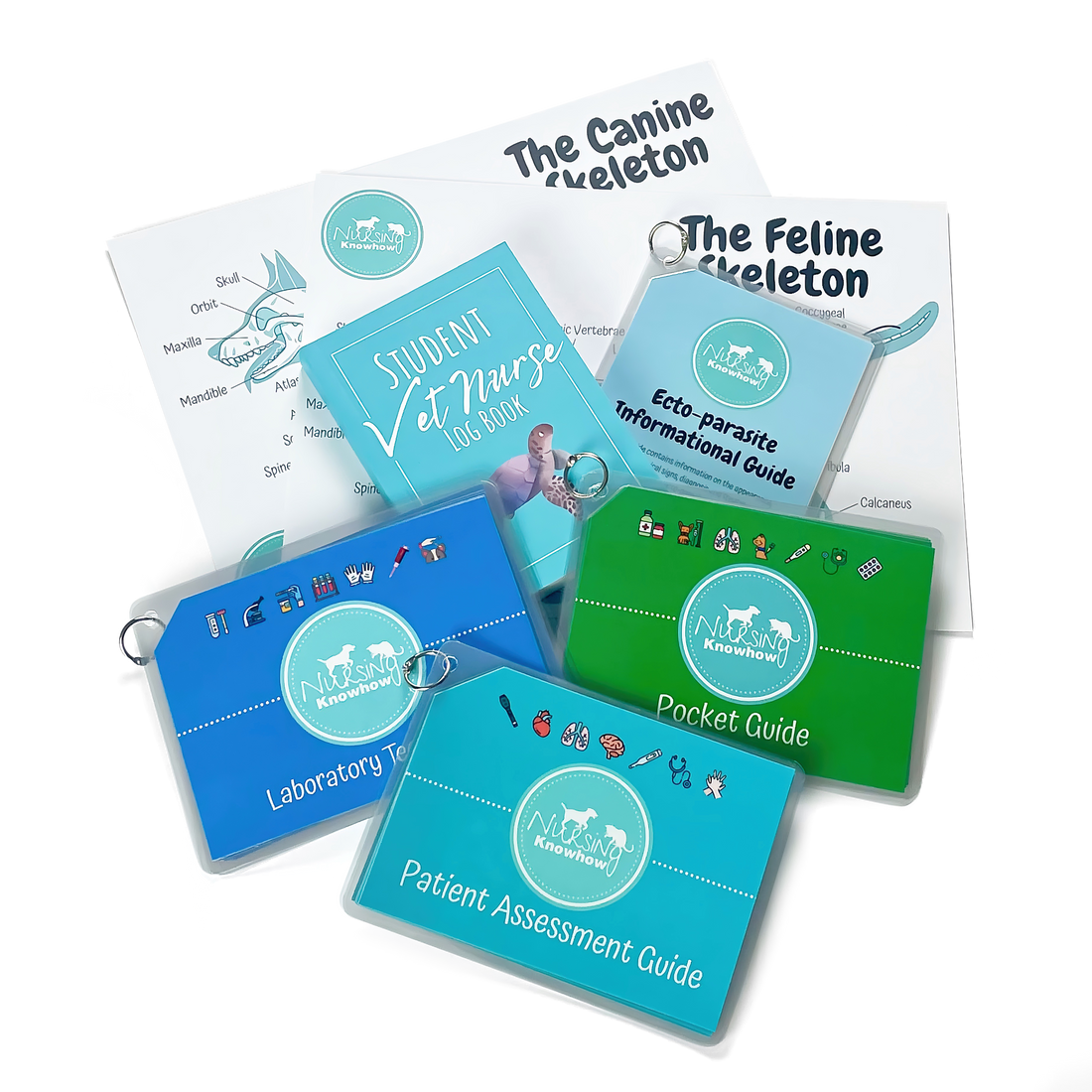As you’ll probably be aware, studying to be a vet involves rigorous academic training. You will also need plenty of practical experience, so the right resources make all the difference.
Studying to be a veterinarian in the UK requires dedication, academic aptitude, and a zeal for animal health and welfare.
Veterinary medicine degrees in the UK typically require five to six years of study; however, this depends on the university and program. These programs combine classroom learning with hands-on clinical experience.
If you’ve got on a course to study to become a vet, congratulations!
Entry into veterinary programs is highly competitive. Applicants typically need strong grades in science subjects such as biology and chemistry at the secondary school level. Many universities also require applicants to pass admissions tests such as the Biomedical Admissions Test (BMAT) or the UK Clinical Aptitude Test (UKCAT).

We would love to help support your journey with a range of resources on our website. Our Ultimate Student Bundle is a great way to get started. It contains posters and log-books which can be useful for both veterinary students and those becoming a veterinary nurse.
Nursing Knowhow provides a range of resources related to various parts of the curriculum.
Veterinary programs cover a wide range of subjects including anatomy, physiology, pathology, pharmacology, microbiology, animal behaviour, and veterinary ethics. Clinical training is usually introduced in the later years of the program.
Practical training is a significant component of veterinary education. Students gain hands-on experience through placements in veterinary practices, farms, and research institutions. Clinical rotations allow students to work with different species and develop clinical skills under supervision.
We also have resources to help you continue your education afterwards. Veterinary professionals are expected to engage in continuing education throughout their careers to stay abreast of advancements in the field and maintain their professional registration.
Veterinarians in the UK can pursue careers in various sectors including private clinical practice, government agencies, research institutions, pharmaceutical companies, and academia. Specialisation through postgraduate study and training is also an option for those interested in specific areas of veterinary medicine.
What kind of challenges can you expect to deal with?
People love their pets dearly, and it’s extremely stressful when they’re unwell. The veterinary profession can therefore be both physically and emotionally demanding. Veterinarians often work long hours, handle challenging cases, and may face difficult decisions regarding animal welfare and euthanasia.
Veterinarians in the UK have a legal and ethical responsibility to uphold the welfare of animals under their care and to adhere to professional standards set by the RCVS.

Veterinary students and professionals require a diverse range of resources to support their studies and practice.
Firstly, textbooks can still be proven to be invaluable. Comprehensive textbooks covering various aspects of veterinary medicine such as anatomy, physiology, pharmacology, pathology, microbiology, and clinical medicine are fundamental resources.
Access to scientific journals and research papers also helps. These provide the latest information on advancements in veterinary medicine, diagnostic techniques, treatment modalities, and emerging diseases.
Subscription-based databases like PubMed, Web of Science, and VetMed Resource offer access to a vast repository of scientific literature, research articles, and clinical studies.
Visual aids like anatomical models, atlases, and software programs help students understand the complex anatomical structures of animals.
Our resources include handy downloadable posters of the skeletons and anatomy of cats and dogs.
Access to well-equipped laboratories is also crucial. You will need to partake in hands-on learning in areas such as histology, microbiology, haematology, and clinical pathology Opportunities to practise clinical skills on live animals or simulators, under the supervision of experienced veterinarians, are essential for developing proficiency in diagnosis, treatment, and surgery.
Reliable drug references are important for providing essential information on dosage, administration, indications, contraindications, and side effects of medications used in veterinary practice.
Nursing Knowhow’s products include log-books to help vets and veterinary nurses keep track of their activities.
In terms of technology, access to diagnostic imaging modalities such as X-rays, ultrasound, CT scans, and MRI helps students learn to interpret imaging studies for diagnosing various conditions.
You will likely become a member of veterinary associations and attendance at conferences, workshops, and seminars provide opportunities for networking, continuing education, and staying updated on industry trends.
Guidance from experienced veterinarians through mentorship programs and clinical rotations in veterinary hospitals and clinics is invaluable for gaining practical skills and insights into real-world veterinary practice.
Educational websites, online courses, and virtual learning platforms offer supplementary resources, interactive modules, and tutorials covering specific topics in veterinary medicine.
Veterinary Formularies: Access to veterinary formularies containing information on drug dosages, formulations, and treatment protocols for various animal species is essential for clinical practice.
Resources for continuing education, such as webinars, podcasts, and online courses, help veterinarians stay updated on advancements in veterinary medicine throughout their careers.
By making use of these resources effectively, you can acquire the knowledge, skills, and expertise needed to excel in their studies and professional practice.
Find out more about our resources for vets. Or don’t hesitate to get in touch for more information.
